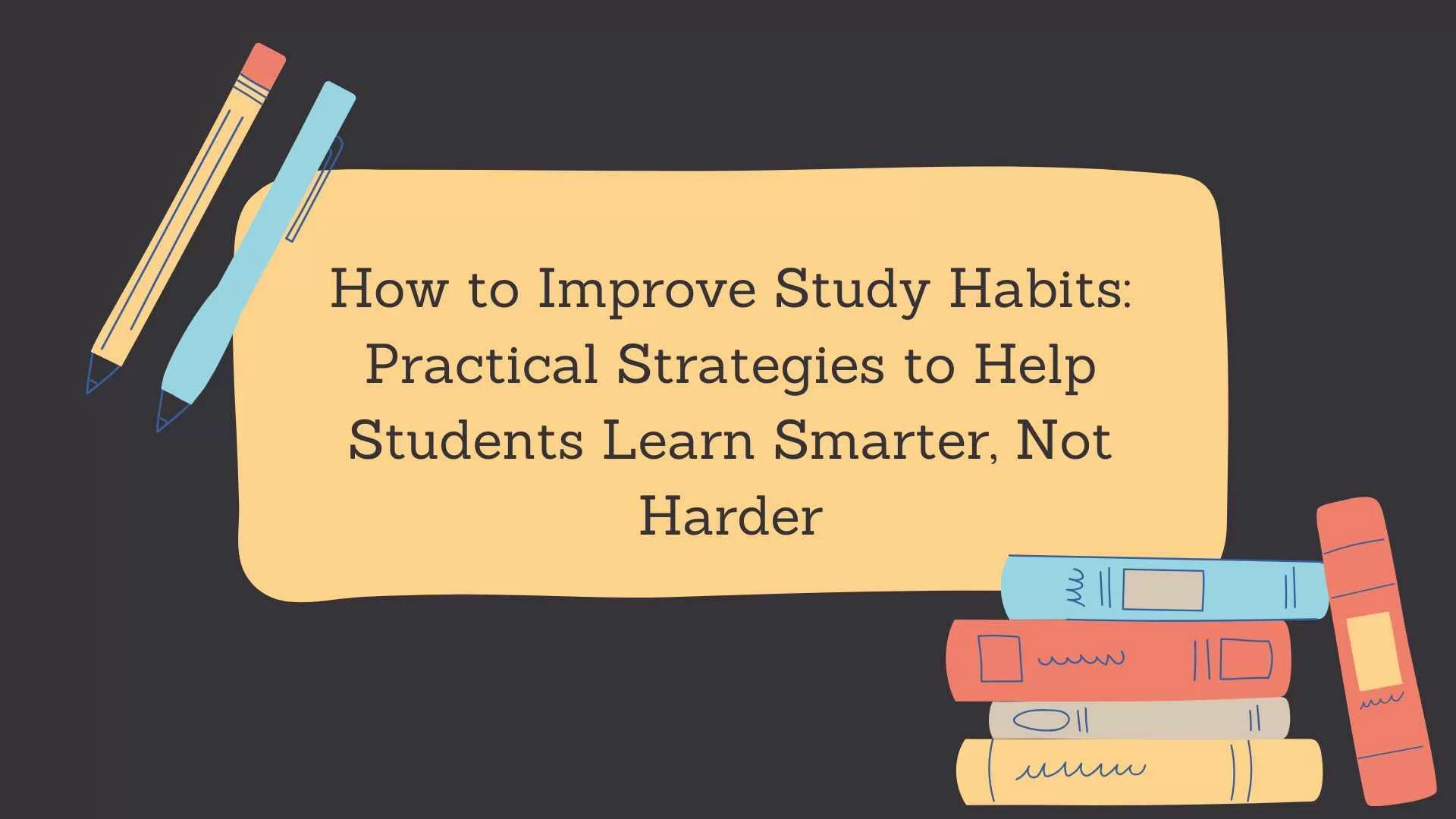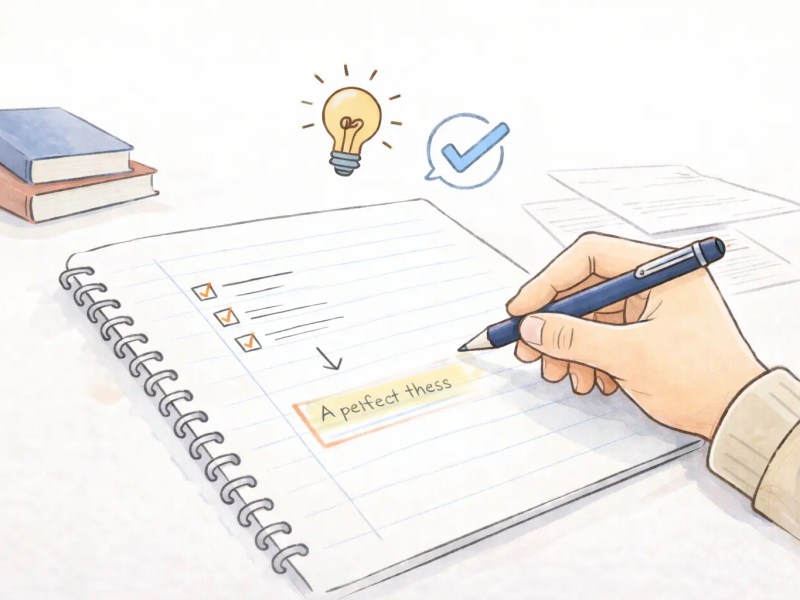Knowing how to study might be the difference between failing and being able to keep up with your courses. The majority of the students are so busy and distracted, and sometimes they do not even know where to start, which results in them having inconsistent results and getting stressed unnecessarily. Developing good study habits is not only about spending more hours; it is also about learning more effectively, being able to focus for a longer period of time, and making your study time as productive as possible.
Good study skills are a strong foundation for success in school. They support students in
becoming disciplined outside the classroom, they help them remember the learned material for a longer period, and they also enable students to face challenges with confidence. Performance to a great extent can be improved and anxiety lowered through all the elements of a study routine, from strategic planning and setting goals to active learning strategies and reflection.
This manual concentrates on delivering concrete and actionable advice that students can implement immediately in order to improve their study methods. By realizing common problems, setting up a controlled schedule, and using tried-and-tested teaching methods, learners can completely change their approach to studies.
The Importance of Good Study Habits
Consistency Builds Mastery
Working
Improved Focus and Productivity
Organised study habits are a way for one’s mind to get used to focusing during the learning stage. When students dedicate time especially to studying, they lessen the chances of being distracted and work out their tasks in a more efficient manner. Such a concentrated method makes study hours more fruitful, resulting in a more productive use of
Boosted Confidence and Reduced Stress
Knowledge of the exact material to be studied and having a precise plan ready lessens the feeling of uneasiness; students appear to be more in command of their learning process, which leads to an increase in their confidence level. The success of regular, disciplined study acts as a source of self-esteem and an inner drive to maintain a proper balance of
Common Study Challenges and How to Overcome Them
Distractions and Maintaining Focus
Students these days face numerous distractions that can fragment attention, from smartphones to noisy environments. Knowing these challenges is the first step toward improving concentration and productivity.
Digital Distractions
Notifications and social media can divert attention away from study tasks, scheduling “offline” periods, or using focus apps that ensure an uninterrupted study session and better retention of material.
Environmental Distractions
Cluttered or noisy surroundings make concentrating difficult, so establish a quiet, organised space with fewer interruptions that improves focus and creates a productive mindset.
Mental Distractions
Stress, fatigue, and wandering thoughts are common barriers. Short mindfulness exercises, breathing techniques, or short breaks help clear the mind and maintain alertness.
Procrastination and Time Management
Delaying study tasks usually leads to a last-minute rush and poor outcomes. Knowing how to prioritise and manage time effectively is the key to making consistent progress.
Time-Blocking
Assigning particular periods for study ensures structured focus, breaking tasks into manageable segments reduces overwhelm, and fosters more consistency in learning.
Prioritisation
What is mostly taught by students is that every task is equally important. Focusing on high-impact tasks first and using lists or ranking systems guarantees that your energy is spent wisely.
Short, Timed Sessions
Techniques like the Pomodoro Method, which alternate study and break periods, improve attention and reduce fatigue during longer sessions.
Burnout and Motivation Challenges
Even the most intelligent student can go through study fatigue if the routine is too hectic and lacks the proper balance. Preventing burnout is quite essential for maintaining long-term study efficiency. And there are certain ways to prevent them. Below are some of them:
Regular Breaks
Frequent, planned pauses that include light activity or stretching help to revive the mind by keeping energy levels and mental focus high.
Achievable Goals
The best way to avoid disappointment is to establish realistic goals and finish smaller, incremental steps that boost confidence and strengthen motivation.
Rewards and Reflection
Celebrating small rewards for achieving small tasks bonds positive habits, reflects on progress that keeps the motivation high, and encourages an effortless and smooth effort.
Building an Effective Study Routine
The key to creating a successful study schedule is to strike a healthy balance between concentration, consistency, and organization, not to adhere to rigid guidelines. By eliminating decision fatigue and making studying a manageable everyday habit rather than a burden, a solid routine gives students clarity. The secret is to create a system that is simple to modify in response to shifting workloads, feels authentic, and is sustainable.
Creating a Clear Structure
A well-planned routine helps students to know what needs to be completed and when. Allocating specific time slots for study reduces those uncertain moments that make it a lot easier to stay on track. This structure also prevents any last-minute panic and encourages a healthier, more organised approach to learning.
A strong structure often includes:
- Set study hours that match your natural energy levels
- A list of subjects or tasks planned the night before
- Defined start and end times to prevent burnout
- Short breaks are built into maintain concentration
Balancing Study with Rest and Everyday Life
What most students get confused about is that routine study isn’t about studying for hours and hours; it’s about having a balance. Students perform best when their routine typically involves time for rest, social activities, exercise, and certain hobbies. This balance supports a strong focus and prevents study fatigue.
To maintain balance, students can:
- Break study sessions into smaller blocks instead of long marathons
- Rotate subjects to avoid mental overload
- Include physical movement, even if it’s just a quick walk
- Protect their sleep schedule as a non-negotiable priority
Reviewing and Adjusting the Routine
A study routine always evolves with the student’s needs, as the workload or personal commitments evolve, the routine must adapt too. Regular check-ins prevent the routine from becoming ineffective or too exhausting.
Signs you need to adjust your routine:
- Tasks consistently spill over into the next day
- You feel mentally drained after short sessions
- Certain subjects are always left until last
Strengthening Long-Term Study Habits
Structuring strong study habits is not a one-time effort; it needs quite a bit of patience, reflection, and a willingness to adjust as academic demands change. Students who build long-term habits often see that studying is less of a chore and more of a natural and integral part of their daily routine. The focus changes from completing tasks to genuinely understanding material and maintaining steady progress throughout the year.
Students may improve their strategy by reflecting on what worked, what created stress, and what improved performance. Even minor changes, like taking better notes or spreading revision more evenly, may have a big impact on the learning experience. These little advancements gradually add up over time, resulting in improved performance, increased confidence, and a better connection with learning.
Building Habits That Truly Last
Learners are better able to cope with difficulties and are less stressed when small, intentional adjustments are made to their everyday routines, which have a long-lasting impact. Ultimately, developing good study practices is a journey that prepares students for a lifetime of learning and self-improvement, not only for tests.
Other informative guide:
Higher Order Thinking Skills (HOTS)
Common Questions
Which
Discover a wide range of travel destinations, from serene beaches to bustling cityscapes, with packages designed to suit every traveler’s needs.
What amount of time is necessary to develop a new study routine?
Most of the students notice the positive changes after a few weeks of constant practice.
Which is preferable: daily study or longer weekly sessions?
Continuous studying helps the retention of the material and decreases the anxiety that is typical for the days before tests.
What should I do if I lose my drive?
You can take small steps to get back your momentum, such as looking over your goals and changing your plan.
What might I do to make learning more interesting?
To keep yourself interested, you may decide to use active learning methods, change the subject, or change your location.
Are exam results truly impacted by study methods?
Definitely, well-organized behaviors lead to better understanding, memorization, and greater general academic



